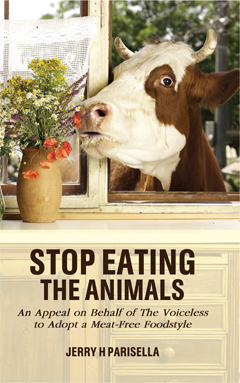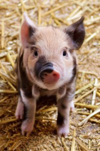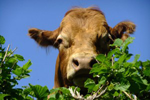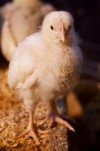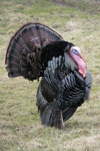What’s not to like about a filet mignon with bernaise sauce, foie gras with a glass of sauterne, or al dente spaghetti with veal meatballs? What’s more mouthwatering than a juicy cheeseburger on a toasted bun, apple-stuffed grilled sausages, or barbecued pulled pork? Who doesn’t have fond memories of digging into tender roast turkey at Thanksgiving, slicing into a succulent baked ham at Easter, or pigging out on pepperoni pizza and cold beers with friends?
Meat has been satiating our taste buds for our entire lives, has been integrated into our holiday celebrations for generations, and has the power to make us salivate like Pavlovian dogs. Let’s face it: Meat tastes good, is full of nutrients, and has been an enjoyable part of our culture and social life.
But our lust for animal flesh is also compromising our health. It’s inducing chronic inflammation in our cells, clogging our arteries, slowing our digestion, contributing to colon cancer, and making us fat.
Factory farms that are supplying us with all this meat cause the needless suffering of millions of animals. These animals are forced to live miserable lives, unable to engage in natural animal behaviors, and endure painful mutilations before ultimately facing horrific deaths and the disassembly of their bodies.
Our insatiable demand for the flesh of animals and its ready supply from industrial-scale factory farms also undermines efforts to feed the world’s starving and malnourished humans by inefficiently using limited agricultural land to raise animals for slaughter—land that could be more efficiently used to grow nutritious plants and grains for wider human consumption. This is not inconsequential in a world where 870 million of our fellow human beings are hungry, two billion are nutritionally deficient, and twenty million die each year from starvation or diseases related to malnutrition.
Perhaps the two most pernicious prices that we all pay for remaining in this rarely questioned, unholy alliance between animal eaters and animal slaughterers are the deadening of our hearts to the legitimate needs of others, and the habituating of our minds to ignore the real costs of our self-indulgence.
To eat animal flesh is to encourage the killing of innocent animals. We may not wish ill for any animal and may, indeed, keep some animals as beloved pets. But the unavoidable math in an economy built on supply and demand is—the more steaks we buy at the supermarket, the more veal dishes we order at the restaurant, and the more burgers we throw on the grill—the more animals will have to suffer and be slaughtered for their flesh. That is the truth.
To eat animals is more than just a simple dietary choice. It is a moral decision with existential consequences. It is difficult to initially appreciate this fact, since most factory farming is hidden from consumers’ view, hindering our ability to make fully informed moral decisions about our dietary choices.
The purpose of this book, then, is to lay out a comprehensive case on behalf of the animals who, if we humans could understand their languages, would ask us to stop eating them.
As you think about the unintended, but no less real, consequences of which foods you choose to put into your mouth, may your heart be moved and your mind opened.
May all humans become more humane.
Ad Maiorem Dei Gloriam
